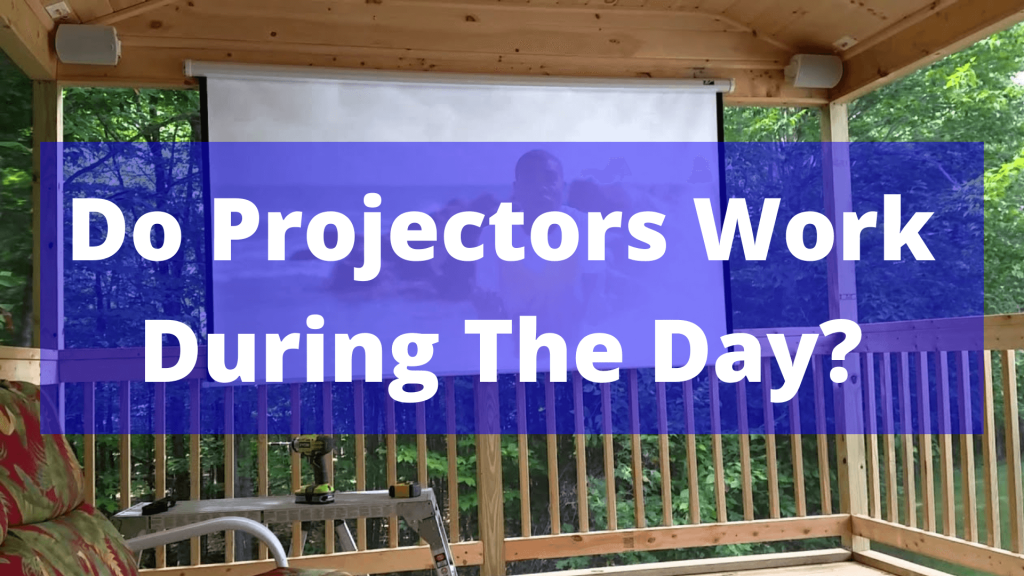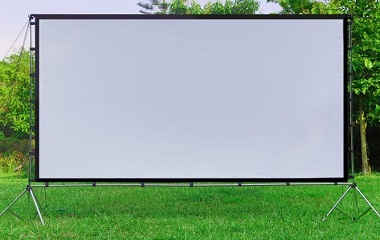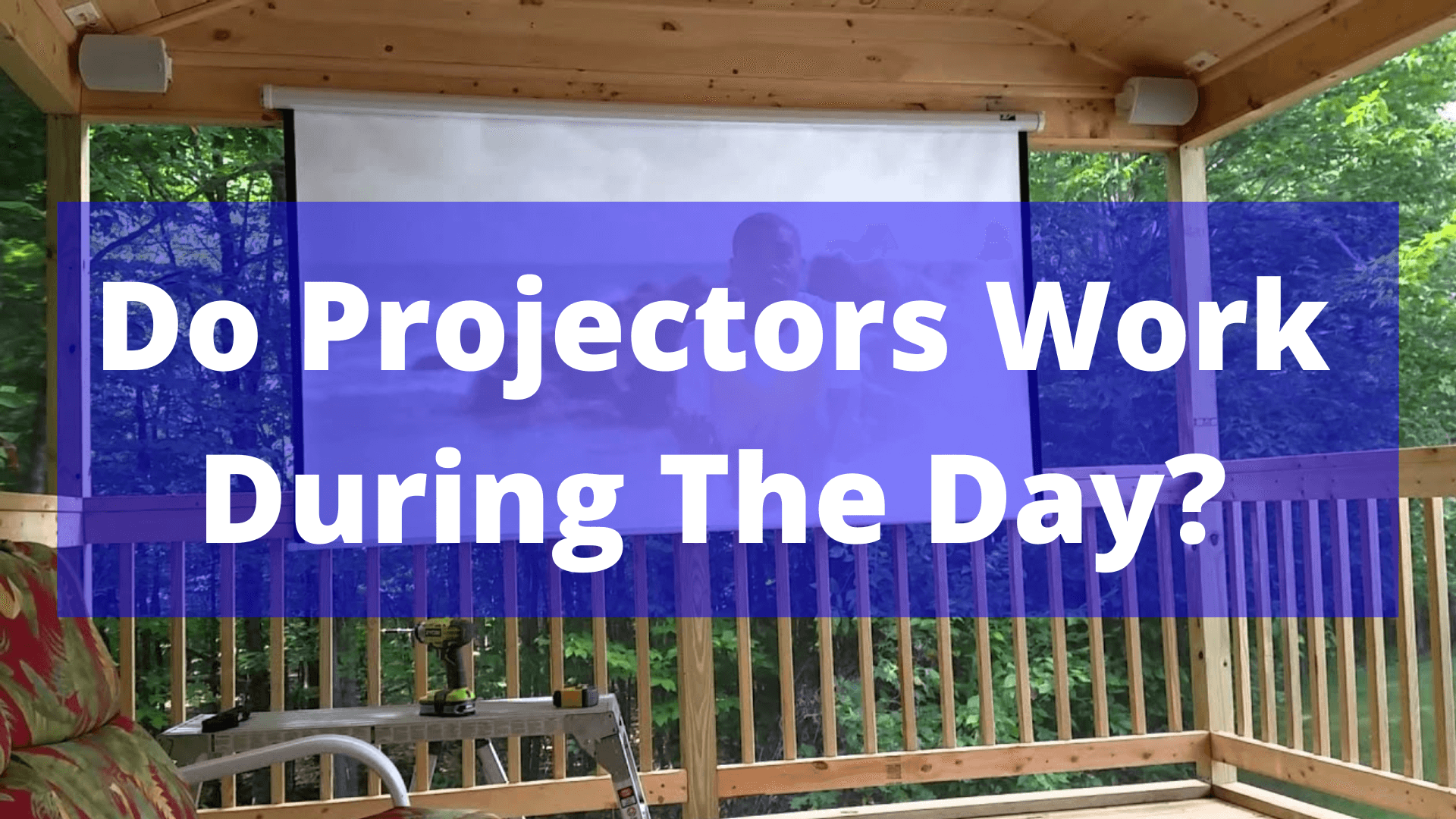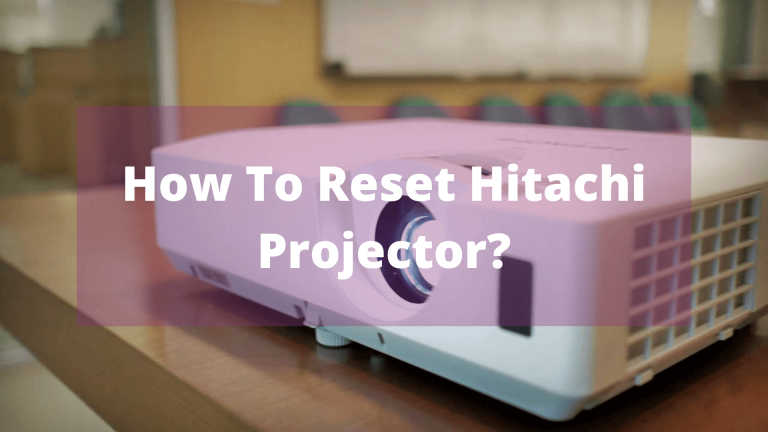Do Projectors Work During The Day? In %currentdate%
A projector can be a great tool to use during the day, whether you’re giving a presentation or watching a movie. They can be used in various settings, and with the right projector, you can get a great image even in bright sunlight. With the correct settings, you can get a clear and bright image that won’t be bothered by the sun’s glare.

Do projectors work during the day?
If you have a high-quality projector with a high lumen count, then you can use it outdoors during the day.
However, if you have a lower-quality projector, you may find it challenging to use during the day due to the amount of light present. Additionally, the type of projector you have can also affect whether or not it will work during the day.
For example, DLP projectors typically have a higher lumen count and can be used during the day, while LCD projectors may have a lower lumen count and may not be as effective during the day.
Can we use a projector during the day outside?
Yes, you can most definitely use a projector outdoors during the day.
Many people use projectors outdoors during the day for various purposes.
For example, you might use a projector outdoors during the day to show a movie to a large group of people.
Additionally, you might use a projector during the day to give a presentation to a group of people. Either way, using a projector outdoors during the day is a perfectly viable option.
It is possible to use a projector outside the day, though it may be more challenging to see the projected image.
The projector’s brightness will compete with the amount of light present outside, and the image may be washed out and difficult to see if there is too much light.
Additionally, the projector’s contrast ratio may also affect the visibility of the image; if the contrast ratio is too low, the image may again be difficult to see.
There are a few ways to increase the visibility of the image in these cases, such as using a screen with a higher gain or using a reflective surface to increase the amount of light projected back toward the viewer.
How many lumens are required if you use a projector during the day?

To use a projector during the day, you will need 2,5OO lumens or more.
This will ensure that the images you are projecting are clear and visible. Keep in mind that the ambient light level in the room will also affect the clarity of the projection, so if possible, try to use a projector in a room with little to no natural light.
Can we use a low-lumen projector during the day?
No, you cannot use a low-lumen projector during the day. The amount of light projected from the lamp is not enough to overcome the amount of light present during the day.
The projector would need at least 2,500 lumens or lux of brightness to make the image appear in daylight.
The lumen is a measure of the amount of light that a projector can emit. A low-lumen projector will not be as bright as a high-lumen projector. This means that a low-lumen projector may not be suitable during the day.
The amount of light that is available during the day will affect how well the projector will be able to display the image. The image may be dim or fuzzy if there is not enough light.
But it is possible to use a low-lumen projector during the day, though it may not be as effective as using one at night.
Low-lumen projectors are designed to project images in low-light conditions. When more light is present, the image projected by the low-lumen projector may appear dim or washed out.
Additionally, the contrast between the projector’s image and the background may not be as stark, making it more difficult to see.
Can sunlight damage the projector screen?

Sunlight will not damage the projector screen from a mechanical or material standpoint.
However, sunlight can cause the screen to become discolored over time. The sun’s ultraviolet (UV) rays can cause fading and deterioration of the screen material. If the sun’s rays are direct and intense, they can cause the screen to become faded or discolored.
Over time, this can result in reduced image quality and decreased lifespan of the projector screen. To help protect your investment, it is recommended to use a screen cover or shade when the projector is not in use and to position the projector so that it is not directly exposed to sunlight.
Additionally, the heat from the sun’s rays can cause the screen to warp or bubble. In extreme cases, the screen may even catch fire. To avoid these problems, keeping the projector screen out of direct sunlight is best.
Conclusion
Projectors can work during the day but will not be as effective as in a dark room. If you use a projector during the day, you should try to find a dark room or use a screen to help block out some of the light. Projectors are also not as effective in rooms with high ceilings or many windows.







